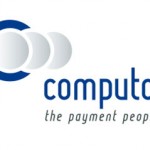The digital revolution on the finance industries

EU experts and stakeholders discussed the impact of the digital revolution on the finance industries, market participants and consumers at a recent event organised by ACCA (The Association of Chartered Certified Accountants) and Deloitte in Brussels
Internet and digital technologies are transforming our societies, with an incredible potential for new opportunities, but also presenting challenges. From online payments for goods and services to peer-to-peer lending, omnipresent connectivity, infinite data and artificial intelligence are fundamentally transforming the financial services industry. On January 26, 2016 ACCA and Deloitte organised an event on how finance professionals should embrace changes and on finding the balance between performance, convenience, security and privacy.
David Barnes, DTTL Global Managing Director for Public Policy at Deloitte, opened the debate, set the scene and raised points for the panellists to pick up on such as the impact of FinTech on the workforce of tomorrow.
‘Financial services have become an ‘anytime, anywhere, any device’ proposition,’ noted Peter Kerstens of the European Commission. Technology transformation in finance entails opportunities, such as growth, speed, convenience, stability, but it also entails risks, linked to security, fraud, stability and transparency.
MEP Ivan Štefanec, during his key note speech, said: ‘I appreciate the innovative potential of digital applications and financial services. It leads to the improvement of working standards, more transparent processes and improvement of productivity.’
Faye Chua, Head of Business Insights at ACCA, who moderated the debate said: ‘The digital revolution is fundamentally reshaping finance and further work is needed on issues such as how to ensure both convenience and security, fight online fraud and guarantee a sufficient level of data protection.’
The discussions highlighted that regulation needs to reflect values, which are timeless, while technology is not. Also, unlike machines, people have a social consciousness – and conscience – that adapts with the times. There are new business models, new market participants and new paradigms (e.g. virtual currencies and payments, peer-to-peer transactions, cloud computing, distributed ledgers, big data), which can bring into question existing regulatory models and approaches. This also raises the issue of regulated versus non-regulated sectors and actors. There are clearly regulatory, privacy/security and societal dimensions at play, which need to be balanced.
Timo Span, Partner Technology in Banking, Deloitte Netherlands said: ‘We should expect more new entrants in the payments domain; Bitcoin is already being used but probably won’t replace ‘regular’ currencies while Blockchain is getting ever better and will be used for many innovatiove solutions in and outside the payment domain, for example for ‘Know Your Client’ purposes and account management. Banks need to cooperate with FinTechs and be open to change and so prevent dinsintermediation; they are losing market share but still have many assets to leverage such as fundamental trust with customers.’
Faris Dean (FCCA), Director and Head of Business Services at Bowden Jones Solicitors and Chair of ACCA’s Business Law Global Forum concluded: ‘The Digital agenda question shouldn’t only be considered by larger organisations or firms, but also the SME market. Another important issue is the digital skills bank. Finance professionals need to embrace the new digital era and adapt to it before they can advise clients properly. There is already demand for these skills, and professional bodies need to incorporate that into their syllabus – and there will be even more demand in the near future.’
Source: ACCA





























